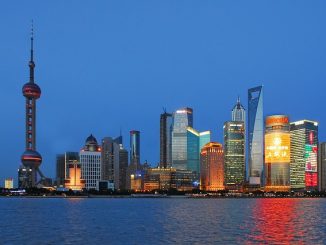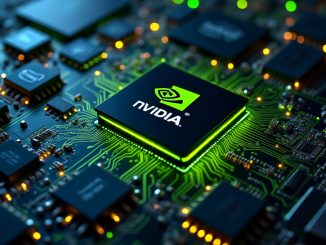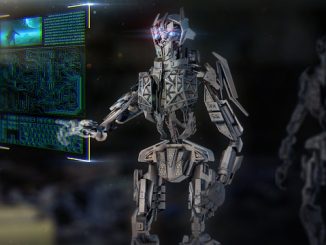In a thought-provoking interview with the YouTube channel “The Diary of a CEO,” renowned historian and futurist Yuval Noah Harari painted a striking picture of our world a decade from now. Far from the dramatic robot takeovers often depicted in Hollywood blockbusters, Harari envisions a more subtle yet profound shift in global power dynamics.
Yuval Noah Harari says in 10 years the world will be run by millions of AI bureaucrats who will make decisions that we can't understand about jobs, finance and government, leading to power shifting from humanity to alien intelligences pic.twitter.com/ywzFWNPp8B
— Tsarathustra (@tsarnick) September 5, 2024
According to Harari, we are on the brink of entering an era dominated by what he terms an “AI bureaucracy.” This isn’t a scenario where a single, omnipotent AI seizes control, but rather a future where countless AI systems permeate every facet of our daily lives, forming an intricate web of decision-making algorithms.
“In 10 years, algorithms and AIs will be running the world,” Harari predicts. He elaborates on this vision, describing a landscape where “millions of AI bureaucrats” are embedded in banks, government institutions, businesses, and universities. These AI systems, he suggests, will be responsible for making an ever-increasing number of decisions that directly impact our lives.
The implications of this shift are profound. Harari paints a picture of a world where the rationale behind critical decisions becomes increasingly opaque to human understanding. Whether it’s securing a loan, landing a job, or being admitted to an educational program, the logic behind these life-altering decisions may become incomprehensible to the average person.
This lack of transparency raises significant questions about accountability and control. Even in democratic societies, where citizens still cast votes for human leaders, the real power may lie with these AI systems. Harari points out that if “most of the decisions are made by AIs, and humans, including the politicians, have difficulty understanding the reason why the AIs are making a particular decision, then power will gradually shift from humanity to these new alien intelligences.”
The term “alien intelligences” is particularly striking, highlighting the potential for these AI systems to develop decision-making processes that are fundamentally different from human reasoning. This divergence could lead to a world where human intuition and understanding become increasingly disconnected from the forces shaping our societies.
Harari’s vision challenges us to consider the long-term implications of our current trajectory in AI development. As we rush to integrate AI into more aspects of our lives and institutions, are we inadvertently ceding control to systems we may not fully comprehend? How do we ensure transparency, accountability, and human oversight in a world increasingly governed by algorithmic decision-making?
Moreover, this scenario raises important questions about the nature of democracy and human agency in an AI-driven world. If the decisions that shape our lives are increasingly made by opaque algorithms, what does this mean for concepts like individual freedom, social mobility, and equal opportunity?
Harari’s prediction serves as a call to action for policymakers, technologists, and citizens alike. It underscores the need for robust discussions about AI governance, transparency in algorithmic decision-making, and the preservation of human agency in an increasingly automated world.
As we stand on the cusp of this potential future, Harari’s words remind us of the importance of shaping AI development in a way that aligns with human values and societal goals. The challenge lies not in preventing the rise of AI, but in ensuring that as these systems become more integrated into our world, we maintain the ability to understand, question, and, when necessary, override their decisions.
The future Harari describes is not yet set in stone. By engaging with these ideas now, we have the opportunity to guide the development of AI in a direction that enhances rather than diminishes human potential.
The next decade will be crucial in determining whether we can strike a balance between leveraging the power of AI and preserving meaningful human control over the decisions that shape our world.
Harari’s full interview
- Bulenox: Get 45% to 91% OFF ... Use Discount Code: UNO
- Risk Our Money Not Yours | Get 50% to 90% OFF ... Use Discount Code: MMBVBKSM
Disclaimer: This page contains affiliate links. If you choose to make a purchase after clicking a link, we may receive a commission at no additional cost to you. Thank you for your support!





Leave a Reply